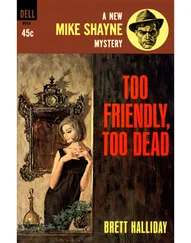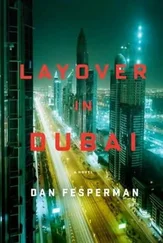Dan Fesperman - Lie in the Dark
Здесь есть возможность читать онлайн «Dan Fesperman - Lie in the Dark» весь текст электронной книги совершенно бесплатно (целиком полную версию без сокращений). В некоторых случаях можно слушать аудио, скачать через торрент в формате fb2 и присутствует краткое содержание. Жанр: Триллер, на английском языке. Описание произведения, (предисловие) а так же отзывы посетителей доступны на портале библиотеки ЛибКат.
- Название:Lie in the Dark
- Автор:
- Жанр:
- Год:неизвестен
- ISBN:нет данных
- Рейтинг книги:3 / 5. Голосов: 1
-
Избранное:Добавить в избранное
- Отзывы:
-
Ваша оценка:
- 60
- 1
- 2
- 3
- 4
- 5
Lie in the Dark: краткое содержание, описание и аннотация
Предлагаем к чтению аннотацию, описание, краткое содержание или предисловие (зависит от того, что написал сам автор книги «Lie in the Dark»). Если вы не нашли необходимую информацию о книге — напишите в комментариях, мы постараемся отыскать её.
Lie in the Dark — читать онлайн бесплатно полную книгу (весь текст) целиком
Ниже представлен текст книги, разбитый по страницам. Система сохранения места последней прочитанной страницы, позволяет с удобством читать онлайн бесплатно книгу «Lie in the Dark», без необходимости каждый раз заново искать на чём Вы остановились. Поставьте закладку, и сможете в любой момент перейти на страницу, на которой закончили чтение.
Интервал:
Закладка:
“Under conditions like these? Use your head, Mr. Petric. There has never been a better time. Half the city’s evacuated, or dead and buried. Buildings are destroyed or half wrecked. Even the Nazis didn’t have it so easy. At least with them, once the war was over we knew who had it, where to look for it. Under these conditions who’s to say where something might end up once it’s looted. There will be a thousand suspects to choose from. The Serbs will blame the Muslims, the Muslims will blame the Chetniks, the Croats, too. Everybody will blame everybody, and then you’ve got the gangsters, Zarko or Enko or any of a dozen hoods in this city alone. And if you don’t like your neighbor’s looks you can always blame him. I’m a Serb and know my stuff, so maybe someone will even think to blame me. Maybe they already have. Or maybe now someone will pin it all on Vitas. Dead men always have a knack for attracting blame.
“The point is, there are a thousand built in excuses if you want to explain away a lot of missing art, and that gives you all the opportunity in the world for lifting, looting, or ‘misplacing’ any piece you might get your hands on. And that goes double for items from the transfer files, as long as there aren’t any records. Who can even say what’s been taken if you don’t know what existed to begin with? And even if that idiot Murovic ever gets UNESCO on his side, by then anything that turns up missing will be written off as a casualty of war. And whoever took it will be home free.”
“Yes, but actually getting it out of here is a different matter. It’s not like you can just crate up a picture and drive it over the mountain in a truck, unless you have a U.N. escort. Even then you might lose it on the way at a checkpoint. The only sure way is by air, and that’s strictly U.N.”
“And you think that’s an obstacle?”
“Isn’t it?”
“Ah, the U.N.”
Glavas cackled, wheezing again, then broke into a splitting cough. By now Vlado was expecting to see his insides begin bubbling out of his mouth in a red-and-gray froth. Glavas lifted a crusted, yellowed handkerchief to his mouth and hawked into it. As he pulled it away a rubbery green thread stretched from his nostrils like a strand of melted cheese from a slice of pizza. Glavas wiped it away with the sleeve of his other arm as he heaved gently with laughter.
“Pardon me, Mr. Petric. One thing that I must say pleases me about wartime. No more resting on the need for convention and good manners. It’s all too tiring, so I’m free to just be a grotesque old man, and I can blame it all on the Chetniks.”
He laughed again, and for a moment Vlado thought he was about to descend into another gorge of hacking. But the wheeze subsided, and Glavas slumped back in his chair, spent.
“Yes, the U.N.,” he began again, in a softer voice, his face tilted toward the ceiling. “Our protector against evil. Do you realize, Mr. Petric, that if you want to ship in something other than beans and rice and flour that the U.N. won’t let you? Not fair, they say. That would be taking sides in the war. Not even medicine. The Serbs would object, they say. Maybe some salt and pepper then? Or perhaps a load of vegetables or two? No, not possible. Against the rules. Yet I firmly believe that if you want badly enough to send something out of the city on those empty departing planes, something small and portable and easily loaded into an air cargo bay, then that is entirely possible provided you have the right sums of money. Do I know this officially? Or for certain? No, Mr. Petric, I don’t. But I feel intuitively from the whisperings I heard around the gallery early in the war, talk of private collectors protecting their choicest pieces by sweet-talking UNESCO underlings and blue-helmeted shipping officers. A few Deutschemarks here and there. It is all a private matter, a few favors for friends, and then it need never be spoken of again. So, yes, I believe the U.N. is not so great an obstacle.”
“But once you’ve shipped it, then what? What’s the international market for stolen art? Won’t someone ask questions about where it’s from?”
“Do you have any idea how much stolen art is ever recovered, Mr. Petric? Any idea at all?”
“A third? Maybe a quarter?”
“Less than one percent. And when no one even has a piece of paper to alert the international auction markets, then you’re going to shave that figure even closer. All you need is a broker willing to ask as few questions as possible. London, Zurich, New York, any of those three places would probably do. And if there are still worries, there’s always some discreet oilman in Texas who’ll take it for his basement. Or some rich old German in South America who has half the local constabulary in the hip pocket of his lederhosen. Selling it and keeping it a secret aren’t the hard parts unless it’s something so notoriously famous that everyone will spot it right away. And nothing from here fits that description. Which isn’t to say you can’t make a lot of money from it.”
“So how many items are we talking about? You said the transfer files were up past a thousand, but obviously not everything was in Sarajevo.”
“No. But more of it than you’d think. Belgrade and Zagreb never seemed quite as interested as local folks and officials. This always has been a city that prided itself on its tastes, on its private collections. About three hundred or so were here.”
“Then how much money are we talking about? On average.”
“Art isn’t something that lends itself to averaging. At least that’s what I used to tell people to show off my purity. But I’ve grown vulgar in my old age, and I’ll tell you right now that the worth of the three hundred or so transfer items in the city probably averaged out to about a hundred sixty thousand dollars apiece. Hardly something to get the art people at Scotland Yard excited about. But get your hands on a third of the supply and you’ve got sixteen million. Not bad for a hard cash economy And if you’re willing to be a little more discriminating you can easily up your average, maybe four hundred thousand apiece for the top one-third. Now you’re looking at forty million, or at least twenty million even after you’ve accounted for the discounting you sometimes have to do when you’re selling items of questionable provenance. I can see someone getting killed over that, Mr. Petric, can’t you?”
So much for meat and cigarettes, Vlado thought. So much for the sad, tawdry underbelly of the city’s organized crime. Now death on a small scale began to have a certain logic.
“I’d like you to do a favor for me,” he said to Glavas. “I can’t provide you with either a clean, warm room or good food, and I don’t have any Marlboros. But I can leave you a full pack of Drinas if you can start trying to put together what you remember of the local items that were in the transfer files.”
“Under the circumstances, I’d consider that a generous offer.”
“Take the next two days and write down as much as you can remember about the most valuable pieces. Who had them. At what location. Particularly in the city center. Never mind the Grbavica and Ilidza locations. Never mind your piece up on the wall, either. I want to start looking for some of those ‘empty spaces’ you were talking about, the more recently empty the better, and the only way I’ll know where to look is with the help of your memory.”
“Consider it done,” Glavas said, flashing some of the old nobility and grace he must have employed during his years in the universe of artists and museums. “It will be a privilege to feel useful again. I’ll begin as soon as you’ve left.”
Vlado shut his notebook, hunching forward as if ready to stand, then asked, “Did Vitas say anything about where he was going next. About who else he might be seeing?”
Читать дальшеИнтервал:
Закладка:
Похожие книги на «Lie in the Dark»
Представляем Вашему вниманию похожие книги на «Lie in the Dark» списком для выбора. Мы отобрали схожую по названию и смыслу литературу в надежде предоставить читателям больше вариантов отыскать новые, интересные, ещё непрочитанные произведения.
Обсуждение, отзывы о книге «Lie in the Dark» и просто собственные мнения читателей. Оставьте ваши комментарии, напишите, что Вы думаете о произведении, его смысле или главных героях. Укажите что конкретно понравилось, а что нет, и почему Вы так считаете.












